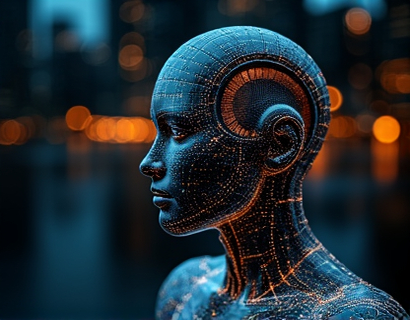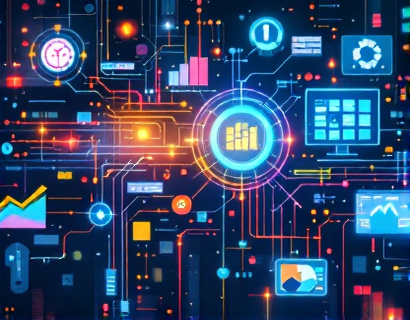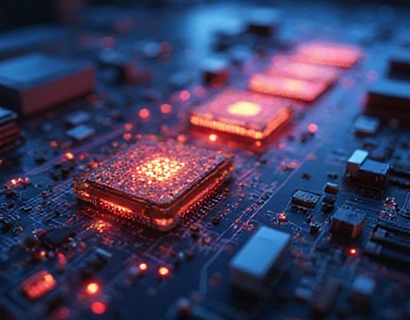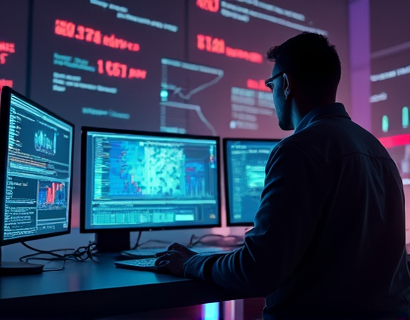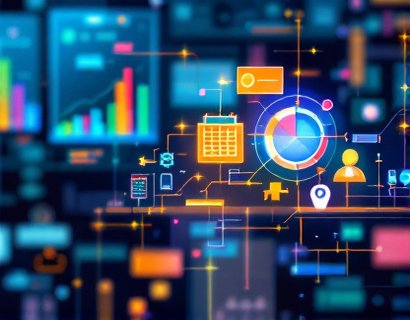Unlocking Digital Potential: Leveraging AI and Crypto for Transformed User Experiences
The digital landscape is rapidly evolving, driven by technological advancements that redefine how we interact with technology. At the forefront of this transformation are two revolutionary forces: Artificial Intelligence (AI) and Cryptocurrency. This article delves into the powerful synergy between AI and blockchain technology, exploring how their integration can drive unprecedented growth, engagement, and innovation in the tech industry. Ideal for tech enthusiasts and crypto experts, this piece aims to provide valuable insights into the combined potential of these technologies and their profound impact on digital projects.
The Intersection of AI and Cryptocurrency
Artificial Intelligence, with its ability to analyze vast amounts of data, learn from patterns, and make decisions with minimal human intervention, has become a cornerstone of modern technology. Cryptocurrency, on the other hand, represents a decentralized and secure method of transaction, powered by blockchain technology. When these two domains converge, the possibilities for transforming user experiences become vast and exciting.
The integration of AI and cryptocurrency is not just a technological curiosity; it is a strategic move that can unlock new levels of efficiency, security, and user engagement. By leveraging AI, blockchain networks can optimize operations, enhance security protocols, and create more intuitive and personalized user interfaces. Conversely, the decentralized and transparent nature of cryptocurrency can provide AI systems with robust, tamper-proof data sources and transaction records.
Enhancing Security Through AI and Crypto
Security is a paramount concern in the digital world, and the combination of AI and cryptocurrency offers a robust solution. Traditional security measures often rely on centralized systems, which can be vulnerable to breaches and hacks. By contrast, blockchain's decentralized architecture, combined with AI's advanced analytics, creates a multi-layered defense mechanism.
AI can monitor blockchain networks in real-time, detecting anomalies and potential threats with high accuracy. Machine learning algorithms can adapt to new types of attacks, continuously improving the security posture of the network. Smart contracts, self-executing contracts with the terms directly written into code, can be enhanced with AI to automatically respond to security breaches, ensuring that the system remains resilient and secure.
Moreover, AI-driven identity verification and authentication processes can be integrated with cryptocurrency transactions, providing users with a secure and seamless experience. Biometric data, such as facial recognition or fingerprint scans, can be used to verify identities, reducing the risk of fraud and enhancing user trust.
Personalization and User Engagement
One of the most significant benefits of combining AI and cryptocurrency is the ability to create highly personalized user experiences. AI algorithms can analyze user behavior, preferences, and interactions to deliver tailored content and services. In the context of cryptocurrency, this means that users can enjoy a more customized and engaging experience when using blockchain-based applications and services.
For instance, a decentralized finance (DeFi) platform can use AI to analyze a user's financial behavior and offer personalized investment recommendations, loan options, and insurance products. This level of personalization not only enhances user satisfaction but also increases engagement and loyalty to the platform.
Crypto-based loyalty programs can also benefit from AI-driven personalization. By tracking user interactions and preferences, these programs can reward users with tokens or discounts that are most relevant to their interests, fostering a stronger connection between the user and the brand.
Optimizing Operations and Efficiency
The integration of AI and cryptocurrency extends beyond security and personalization; it also revolutionizes the operational aspects of digital projects. AI can automate routine tasks, reduce manual errors, and optimize resource allocation, leading to significant cost savings and increased efficiency.
In the realm of blockchain, AI can help manage and optimize the network's resources. For example, AI algorithms can predict network congestion and adjust mining difficulty dynamically to maintain a stable block time. This ensures that the network remains efficient and scalable, even as the number of transactions grows.
Smart contracts can be programmed with AI-driven logic to execute complex business processes automatically. This reduces the need for intermediaries and speeds up transaction times, making the entire process more streamlined and cost-effective. For businesses, this means faster execution of contracts, reduced administrative overhead, and a more agile operational environment.
Data Privacy and User Control
Data privacy is a growing concern in the digital age, and the combination of AI and cryptocurrency offers a promising solution. Blockchain's inherent transparency and immutability, when paired with AI's data analysis capabilities, can create a system where users have greater control over their data.
AI can help implement advanced privacy-preserving techniques, such as differential privacy and homomorphic encryption, ensuring that user data is protected while still being useful for analysis. Users can grant or revoke access to their data with precision, knowing that their information is secure and used ethically.
Cryptocurrency transactions can also be designed to prioritize user privacy. Zero-knowledge proofs, a cryptographic method that allows one party to prove to another that a statement is true without revealing any information beyond the statement itself, can be used to verify transactions without exposing sensitive details. This enhances user privacy and builds trust in the system.
Innovative Business Models
The synergy between AI and cryptocurrency opens up new business models that can drive innovation and growth. One such model is the tokenized economy, where tokens represent value and can be used for various purposes within a decentralized ecosystem. AI can enhance these models by providing insights into user behavior and market trends, enabling more effective token distribution and utility design.
For example, a decentralized marketplace can use AI to analyze user preferences and dynamically adjust token prices to reflect demand and supply. This creates a more fair and efficient market, where tokens are valued based on real-time usage and utility. Additionally, AI can help identify new use cases for tokens, expanding the ecosystem and attracting more users.
Another innovative approach is the use of AI-driven predictive analytics to forecast market trends and user behavior. This information can be used to develop new products and services that meet the evolving needs of users, keeping the platform ahead of the competition. By leveraging AI to analyze blockchain data, businesses can make data-driven decisions that drive growth and innovation.
Challenges and Considerations
While the potential of AI and cryptocurrency is immense, there are challenges and considerations that must be addressed. One of the primary concerns is the regulatory landscape. The intersection of AI and cryptocurrency operates in a relatively uncharted legal territory, and compliance with existing regulations can be complex.
Another challenge is the technical complexity of integrating these technologies. Developing robust systems that seamlessly combine AI and blockchain requires expertise in both domains. Organizations must invest in skilled personnel and advanced infrastructure to overcome these hurdles.
Moreover, there is a need for education and awareness among users. Many individuals are still unfamiliar with the concepts of AI and cryptocurrency, which can hinder adoption. Providing clear, accessible information and user-friendly interfaces is crucial for widespread acceptance and usage.
Conclusion
The convergence of AI and cryptocurrency represents a transformative force in the digital world, offering unprecedented opportunities for growth, engagement, and innovation. By leveraging the strengths of both technologies, we can create more secure, personalized, and efficient digital experiences. As the tech industry continues to evolve, embracing this synergy will be key to staying ahead of the curve and unlocking the full potential of digital innovation.





